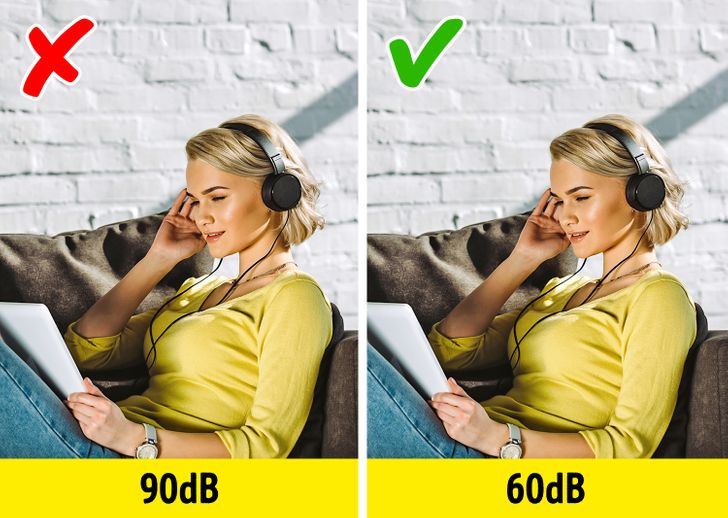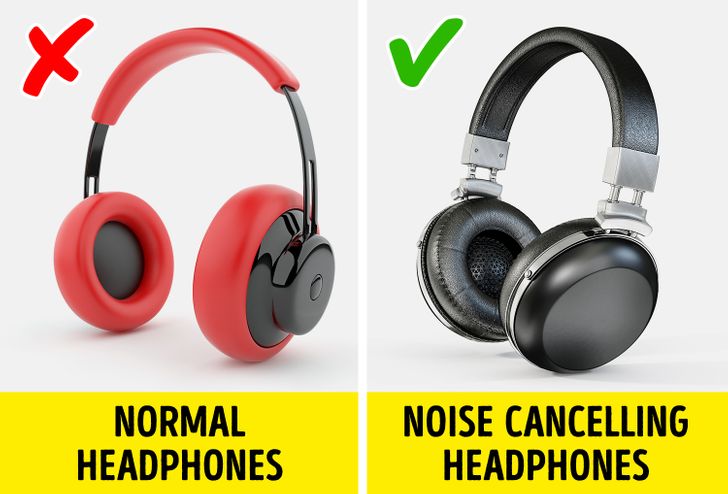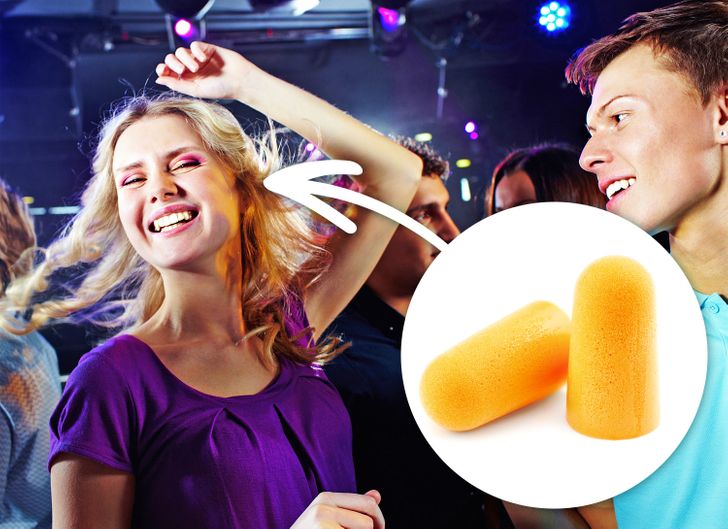Almost all people in adulthood find that as they get older they begin to press the “volume up” button more often or have a hard time hearing and asking the people around them to start talking loudly. There are 2 common occurrences that cause people to lose their hearing over time: age and noise.
As you age, the tiny hair cells in your inner ear begin to break down and cannot pick up certain sound vibrations as well as they used to. In addition, excessive noise can damage the hair cells inside the ears and lead to premature hearing loss.
The good news is that there are many things you can do to prevent noise-induced hearing loss and prevent age-related hearing loss from getting worse. We’ve collected information and tips to help you keep your ears open and young.
Avoid Loud Noise

The best way to prevent and improve your noise-induced hearing loss is to stay away from loud noises as much as possible. You might be wondering, “How much noise is a lot of noise?” For some people, the volume of a noise can be subjective, but there are many objective ways to describe it to make it understandable to everyone.
Generally speaking, noise can be loud enough to damage your hearing if:
- You need to raise your voice to talk to other people or get other people to hear you.
- You find it difficult to hear what people around you are saying.
- Your ears hurt.
- You have muffled hearing afterward or your ears start ringing.
The only way to measure noise levels is in decibels (dB). The higher the number, the louder the noise. A measured sound above 85 dB can damage your hearing, especially if you are exposed to it for long periods of time.
For example:
- Someone whispering = 30 dB
- 2 people having a conversation = 60 dB
- Traffic = 80 dB – 85 dB
- Motorcycle = 90 dB
- Playing loud music through headphones = 100 dB
- An airplane taking off = 120 dB
With technology at your fingertips, it is very easy to measure noise levels. You can install an app on your smartphone, calibrate it accordingly, and get accurate readings of your noise exposure levels.
Be Cautious When Listening To Music

Playing loud music through headphones can be one of the most dangerous things you can do to your hearing health. This is because when you put on the headphones, you are also trying to mute external sounds that are causing the music volume to be at the highest level.
Remember that turning down the music, even a little bit, can make a big difference to your health.
To help prevent hearing damage, here are some tips to consider:
Choose to buy noise-canceling headphones instead of turning up the volume to mute external sounds. Adjust the volume so you can comfortably hear the music, but NOT louder.
Avoid playing your music at more than 60% of the maximum volume. DO NOT wear your headphones for more than 1 hour at a time. Try to take a break of at least 10 minutes every now and then to get your ears to breathe and to protect them from infection.
Protect Your Ears During Loud Events

When we are exposed to loud noises for a long period of time, we gradually begin to lose our hearing without even realizing it. This is because the damage caused by exposure to loud noise is usually gradual, so it will be unnoticeable until symptoms become more pronounced.
Exposure to loud noise can also cause tinnitus (ringing, buzzing, or buzzing in the ears or head), which can lead to hearing loss in both ears.
It is important to protect your ears from the exceptionally loud noise that can be found at concerts, bars, nightclubs, road works, concerts, sporting events, and more.
Here are some tips to keep in mind:
- Stay away from the source of loud noise.
- Pause to make noise every 15 minutes.
- Give your ears about 18 hours to recover after exposing them to excessive noise.
- Consider wearing earplugs. You can buy reusable “musician earplugs” to reduce the volume of music without distorting it.
Add Some Cardio Into Your Life

Improve your hearing with exercise. A recent study has shown that with increasing levels of cardiovascular health, levels of hearing sensitivity increase. There is a link between the cardiovascular system and the functional capacity of the organs and tissues of the inner ear.
When you exercise, blood flow to the bones and muscles of your ears improves. When blood flow is facilitated by exercise, nutrients such as antioxidants and heat shock protective proteins travel throughout the system and improve hearing.
When you choose to exercise to prevent hearing loss, you must perform large muscle movements such as walking, cycling, and swimming for at least 20-30 minutes at a time, 5 days a week.
Also, try aerobic exercise. They can divert blood flow from less metabolically active parts of the body (i.e., inner ear organs and tissues) to more metabolically active parts of the body (i.e. skeletal muscles involved in exercise).
See your doctor if you notice a sudden change in what you can hear; it could be a symptom of other serious medical conditions. Have you ever had a hearing loss? What have you done about it? Please let us know in the comments below.


